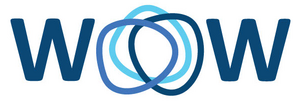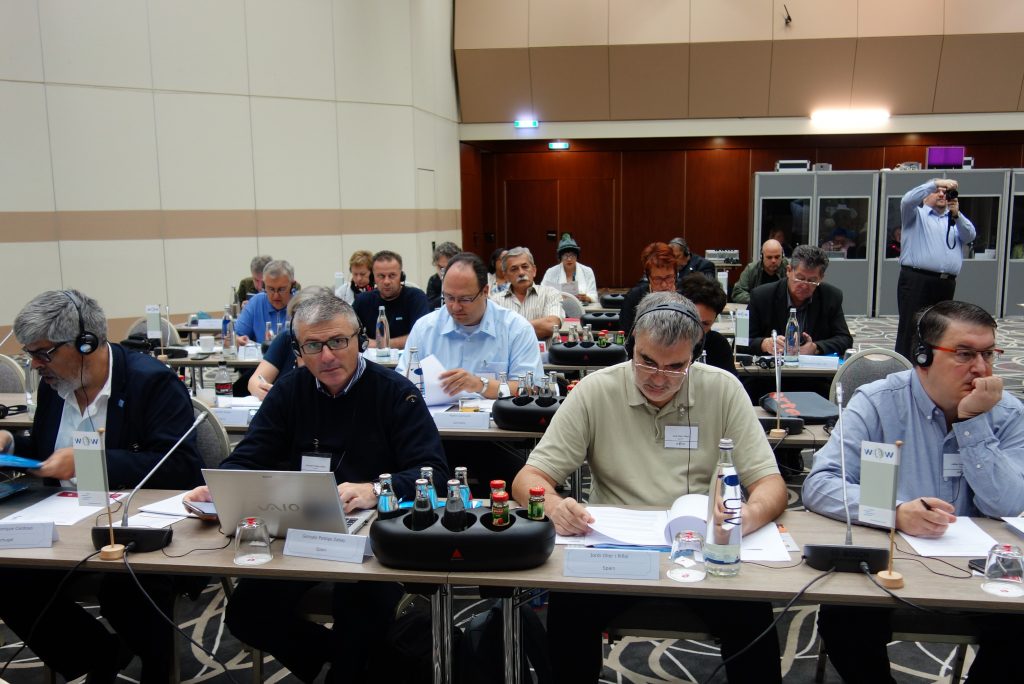Leadership and leadership-styles are changing over time. Additionally, leadership-styles are quite different in the different countries in the European Union. The level of hierarchy in a society and on the work-floor says a lot about the used form of leadership. But what is a good leader? And which form of (albeit potential or not) leadership practiced works best? And in what way does the Social Christian background play a role?
The seminar titled “How can social dialogue structures on national and European level be strengthened and what is the role of ethical and responsible corporate management in that respect?”, tried to give an answer to today’s questions with respect to ethical leadership. The seminar which took place in Frankfurt am Main (Bad Soden), Germany from 03 – 05 October 2016 was organized by the World Organization of Workers (WOW) in cooperation with the European Organization for Workers’ Questions (EZA) and supported by the European Commission. 45 delegates from thirteen different EU Member States and Candidate Member States, participated in the seminar.
Speakers from different sides of the spectrum as well as different countries presented their vision and ideas. The input from the variety of speakers showed vast differences between countries and their level of cooperation.
Ms. Julia Scheerer, Project Manager Program Business in Society, Bertelsmann Stiftung (Germany) opened the seminar by speaking about Leadership and corporate social responsibility in multinational companies: Does ethics really play a role or is it a marketing tool! stressed that it is not black or white when looking at whether ethics is a marketing tool or not. What is important when looking at leadership is the fact that leaders should be role-models and inspire.
Mr. Paolo Giusta, Professor Ethical Leadership – Istituto Universitario Sophia (Italy) used a statement by Robert Denhardt which says that “Leadership should not be seen merely as a position that someone holds, but rather as something that happens in a group or organization, something that ebbs and flows as the group or organization does its work. Anyone can be a leader, whether for a moment, for a few hours, a few days, a few weeks, or for years.” According to him the organizations we have are broken. Particularly when it comes to ethics.
This presentation was followed by an introduction into new ways of working (Uber, Airbnb) and how to deal with these developments? Mr. Per Dyrholm, Labour Market Consultant KRIFA and Master of Law (Denmark) used the interesting comparison ‘free as a bird or a bird in free fall’ for this. In his opinion there are a lot of opportunities, but also a lot of risks. The digital world is of great influence whereby workers in the West will have to compete with others from other parts of the world (with often lower salaries and demands). Cyber-contracts have great impact on society and the traditional structures. Globalization, transformation from single job employment to multi job employment, and disruption of “workplace” will have tremendous effects on work and life as we know it. They disrupts the concept of long-term relations between employers and employees. They moves employees to self-employment. It poses both opportunities and risks for workers.
Mr. Richard D. Lewis, Founder and Chairman Richard Lewis Communications (United Kingdom) started by using a usurp of his own book When Cultures Collide: “Different cultures have diverse concepts of leadership. Leaders can be born, elected, or trained and groomed. Others seize power or have leadership thrust upon them. Leadership can be autocratic or democratic, collective or individual, meritocratic or unearned, desired or imposed.” He focused on the different types of leadership in the different parts of the world and how communication (different forms of communication and different ways of understanding) is culturally driven. He made a distinction between three types of cultures, being linear-active cultures (Northern European), multi-active cultures (Latin), reactive cultures (Asian). This way of thinking decides the form of leadership.
Mr. Andreas Gjecaj, General Secretary FGC (Austria) focussed on Social dialogue then, now, and in the future. Social Dialogue is part of the DNA of Europe. It is very well entrenched in all layers of European society although it differs from one country to the other. One could even depict it as part of European heritage according to EU Commissioner Marianne Thyssen. And even though the world is faced with tremendous challenges the European case is still an example to many countries worldwide. It is therefore not to considered as the end of Social Dialogue as we know it now. Besides that there is no real alternative.
Mr. Dr. Fabian Urban, Director Executive Education Goethe Business School (Germany) introduced the Goethe Leadership Lab. The basis of its philosophy with regards to leadership is to enable, to perpetuate, and to connect. People in general will have to be convinced of certain purposes and then make them their own in order to connect to the philosophy of a leader and/or company. A great contributions was made by Ms. Dr. Karolien Notebaert, Neuroscientist and Faculty of Goethe Business School (Germany) who spoke about mindfulness. Not as a vague and spiritual concept but in a very practical manner. The way in which the brain works is of great influence in our decision-making. Reflective Leadership enables participants to identify their personal leadership potential and to unlock unused capabilities. By detecting individual value systems, specific attitudes, and unexplored resources they receive a clear understanding of their role as a leader.
Lastly Mr. Dr. Leopold Neuhold, Director of the Institute for Ethics and Sociology at the University of Graz (Austria) spoke on Leadership & Ethical Aspects. Being ethical is not always the main focus of leaders. They have to adhere to the company philosophy and have to be accountable towards the various stakeholders. Ethics is becoming more important, but this also depends on the particular country. And although some leaders may want to act more ethical they do not always have the possibilities to do so.
for pictures click here





